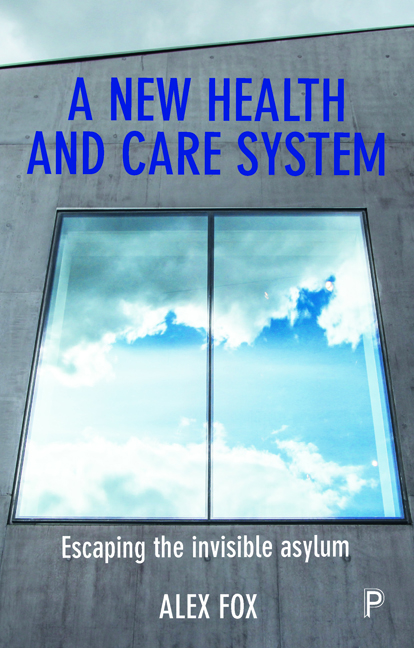Book contents
- Frontmatter
- Dedication
- Contents
- Acknowledgements
- Prologue
- Introduction
- one How we divide the world into community and asylum
- two How we create problems by trying to fix them
- three Why failure pays, but success costs
- four Risk aversion and risk indifference
- five The humanisation experiment
- six Shared Lives
- seven Designing a new national health and wellbeing service
- eight Delivering the national health and wellbeing service
- Can we escape?
- Notes
- References
- Index
two - How we create problems by trying to fix them
Published online by Cambridge University Press: 08 April 2022
- Frontmatter
- Dedication
- Contents
- Acknowledgements
- Prologue
- Introduction
- one How we divide the world into community and asylum
- two How we create problems by trying to fix them
- three Why failure pays, but success costs
- four Risk aversion and risk indifference
- five The humanisation experiment
- six Shared Lives
- seven Designing a new national health and wellbeing service
- eight Delivering the national health and wellbeing service
- Can we escape?
- Notes
- References
- Index
Summary
Some people say that community starts in mystery and ends in bureaucracy. They start with great enthusiasm and a love that surpasses all frontiers, and end up with a lot of administration and wealth, loss of enthusiasm and fear of risk.
(Vanier, 1979: 108)Vanier's description of unintended consequences suggests mystery in the impetus to build collectively, and bafflement at the dysfunctional results. In a similar vein, Ivan Illich took the concept of iatrogenesis, the illness inadvertently caused by the intervention of a doctor, and applied it to public services (Illich, 1974); an idea developed by John McKnight (1995), who used the metaphor of the mechanised John Deere plough turning land, fertile when farmed less intensively by Native Americans, into a dust bowl. So, for McKnight, the overdevelopment of the profession of bereavement counsellor fosters the idea that grief is unhealthy and unmanageable by non-professionals. Grief, which was previously a ‘common property’ of the community – a shared responsibility to which family, friends and neighbours would respond – has become the exclusive professional domain of experts who are licensed and funded to assist the individual to process it:
Like John Deere's plow, the tools of bereavement counseling will create a desert where a community once flourished.
And finally, even the bereavement counselor will see the impossibility of restoring hope in clients once they are genuinely alone, with nothing but a service for consolation. In the inevitable failure of the service, the bereavement counselor will find the desert even in herself. (McKnight, 1995: 7)
By extension, any public service that operates in an area of life that was previously the domain of ordinary family or community relationships risks ‘colonising’ that area of life, creating ‘careless societies’ with clients rather than citizens, who lack confidence in their ability to care for themselves and each other.
McKnight's ideas have not taken hold among UK service planners or policy makers. They are deeply uncomfortable for those who do not wish to think of themselves as doing more harm than good with the resources they control, but also for activists and people who rely on services for vital support and feel those services are increasingly attacked and cut.
- Type
- Chapter
- Information
- A New Health and Care SystemEscaping the Invisible Asylum, pp. 33 - 44Publisher: Bristol University PressPrint publication year: 2018



